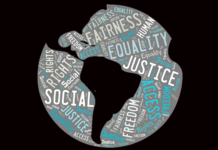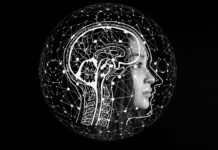What Does Social Justice Really Mean for Psychologists?
Without clarity and consensus around what social justice means, psychologists risk perpetuating injustices that undermine their stated mission.
Does Psychotherapy Reproduce or Disrupt Neoliberal Capitalism?
Researchers explore neoliberal influences on interactions in psychotherapy and question whether the radical potential of psychotherapy can counter prevailing social systems.
The Orwellian New Digital Abilify Will Subjugate Vulnerable People Across the US
The FDA approved the prescribing and sale of a new hi-tech compliance-monitoring “antipsychotic” drug this week. A new chapter in human darkness has descended — one that is applauded by the alliance of control addicts that made it happen.
The Paradox of White Americans’ Mental Health
Are White Americans’ poor mental health outcomes caused by Whiteness?
Western ‘Depression’ is Not Universal
Derek Summerfield, consultant psychiatrist at South London and Maudsley National Health Service Foundation Trust, challenges the assumption that Western depression is a universal condition.
The Proactive Search for Mental Illnesses in Children
Part one of a two-part Mad In America investigation into the expansion of psychological screening and electronic surveillance of children and youth. A new government-funded mental health training program for British Columbia family physicians and school staff promotes screening for mental disorders in all children and youth. Critics say the program omits key scientific evidence, seems more like drug promotion than medical education, and downplays serious potential harms. Nevertheless, programs like it are rolling out across Canada and the US.
Researchers Argue that ‘ADHD’ Doesn’t Meet DSM Definition of a Disorder
New research questions whether the diagnosis of ADHD even meets the criteria for a disorder, as set out in the manuals used by the medical and psychiatric fields.
Challenging Resilience as a Buzzword: Toward a Contextualized Resilience Model
Researcher Dr. Silke Schwarz highlights how Western psychology’s construction of individual resilience deflects emphasized individual pathology and deflects efforts at structural change.
Evolution or Revolution? Why Western Psychiatry Won’t Change by Incremental Steps
...but how realistic is it to expect that the biological skew of Western psychiatry can be sustainably changed one small step at a time?
When Facebook Sent the Cops to My Shelter
Somehow, something I had said in this “secret” Facebook group had been made known. And now, at almost midnight, a cop was banging at the door of the lady who had been keeping me safe in a secret place. How did a “secret” Facebook conversation bring the cops to an address I didn’t have to perform a suicide prevention “welfare check”? Here’s what their “safe” meant to my safety.
Sociologist Questions Effectiveness and Ethics of Mental Health Services
Medical sociologist David Pilgrim argues that mental health care is neither effective nor “kindly,” as it often relies on flawed research and ineffective treatments.
United Nations Rep Brings Attention to Human Rights Violations in Psychiatry
Dr. Dainius Pūras argues that the status quo in mental health treatment is no longer acceptable and demands political action to promote human rights.
Psychotropic Medications Serve as Powerful Tools for U.S. Military, Imperialism
Ethnographic research sheds light on extensive psychopharmaceutical use by soldiers in post 9/11 U.S. wars.
Linking Screen Time, Smartphones, and Stress Among Young Adults
New review ties increased screen time to increasing anxiety and depression among young adults throughout the United States.
Neoliberalism Drives Increase in Perfectionism Among College Students
Meta-analytic study detects upsurge in patterns of perfectionism in young adults and explores how neoliberalism contributes to this trend.
The Conflicts That Result From Globalizing Euro-American Psychology in India
Researchers examine the transformation of work, life, and identity in India as a result of Western corporate and psychological culture.
Feral Psychiatry: More on the Garth Daniels Case
On Wednesday, May 18th, Daniels had what was probably his 102nd consecutive episode of ECT. As always, he told the staff that he did not want it and did not consent to it; as always, he got it. Later on the next afternoon, Garth left to join his family in Brisbane. None of us have a crystal ball but his position now seems much better than at any stage in the past. Let's look at some of the facts and opinions surrounding this case.
To Live and (Almost) Die in L.A.: A Survivor’s Tale
After 25 years of chronic emergency, 22 mental hospitalizations, a stint at a “community mental health center,” 13 years in a "board & care," repeated withdrawals from addictions to legal drugs, and a 12-year marriage, I plan to live every last breath out as a survivor, an advocate, and an artist.
FDA Defends Decision to Approve Digital Aripiprazole
Members of the U.S. Food and Drug Administration’s Psychiatry Products division go on the defensive in a new article, responding to concerns about the agency’s approval of digital aripiprazole.
Loneliness as Lethal: Researchers Name Social Isolation a ‘Public Health Threat’
Researchers present loneliness as a health threat facing a growing number of Americans.
Experts Raise Ethical Concerns About Machine Learning in Medicine
The use of machine learning algorithms (known as artificial intelligence) in the medical field raises a slew of ethical concerns.
Criticism of Coercion and Forced Treatment in Psychiatry
A recent editorial, published in BMJ, argues there is an increase in coercive measures in psychiatry that are damaging to individuals diagnosed with mental illness.
Researcher Critically Examines Movements for Global Mental Health
China Mills raises concerns that global mental health movements obscure social determinants of health and naturalize Western mental health concepts.
The Impact of Mindfulness on Mental Health Stigma Resistance
A new study examines the association of mindfulness and stigma resistance among individuals with a psychiatric diagnosis.
Sense of Purpose Reduces Negative Effects of Social Media Use
New research shows that having a strong sense of personal meaning and purpose can reduce the negative effects of social media use.
































